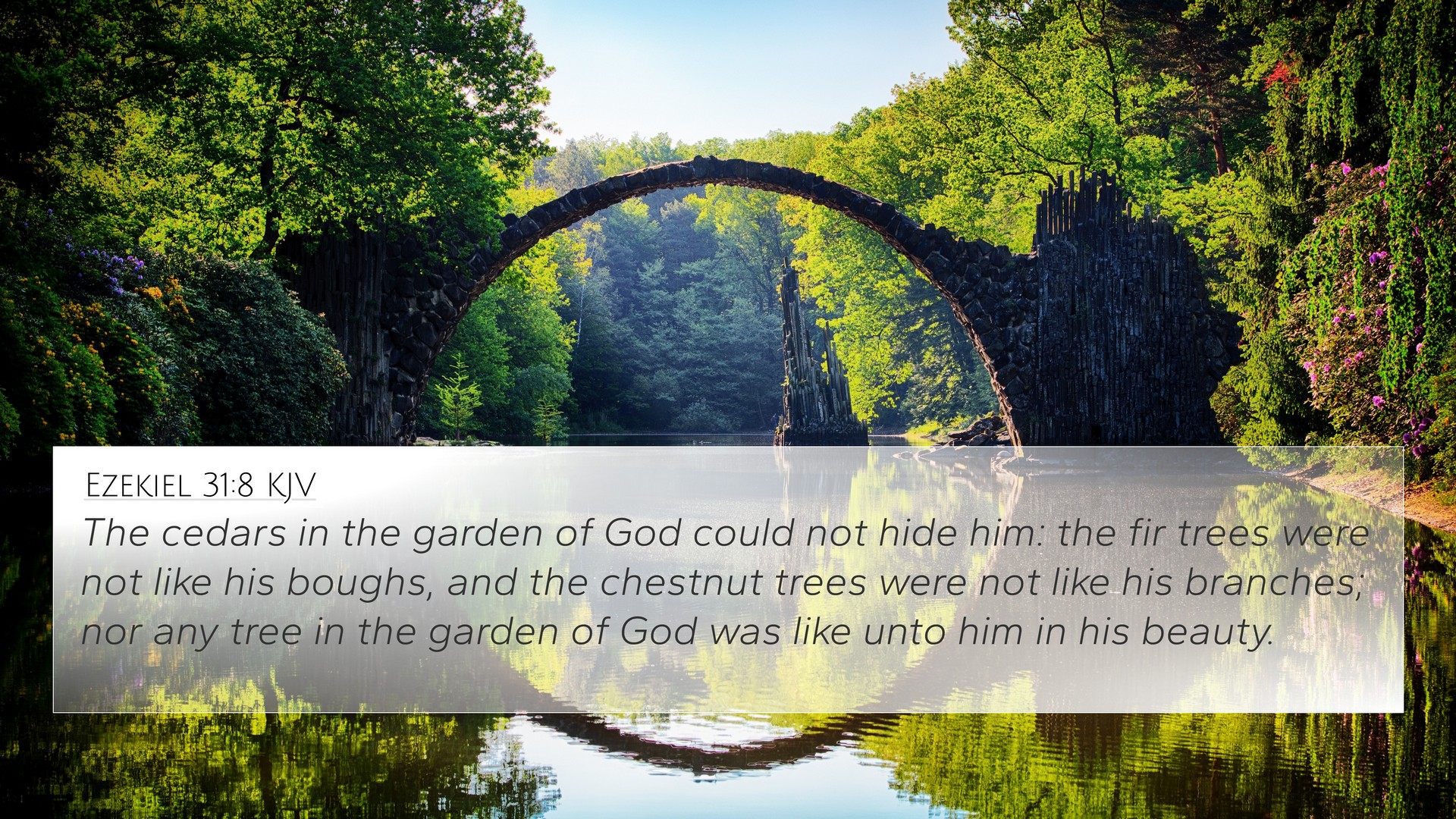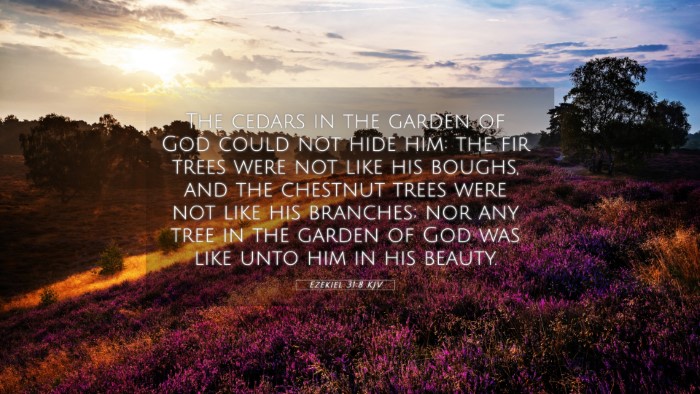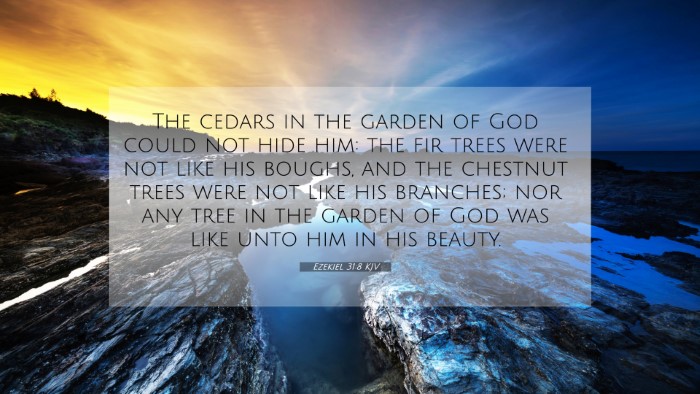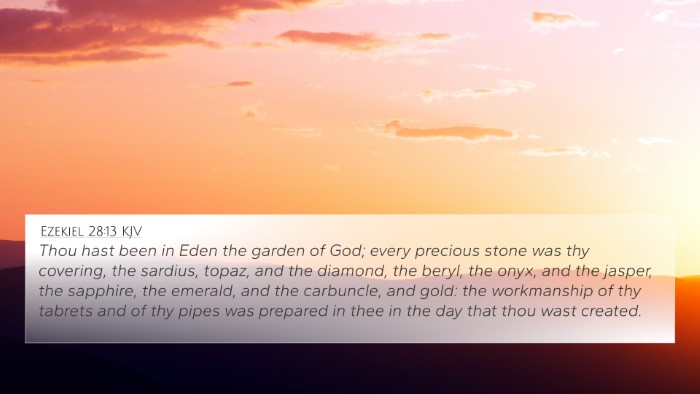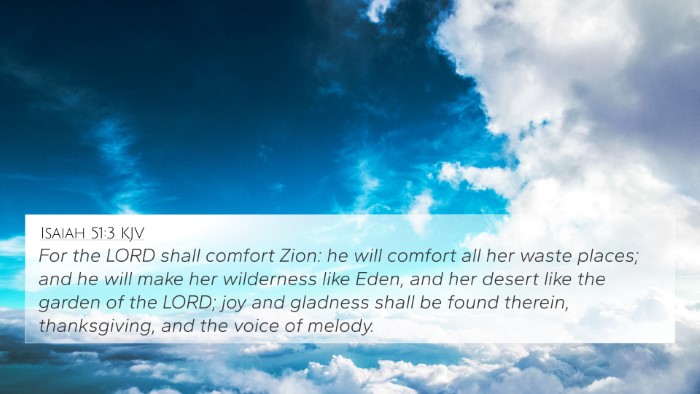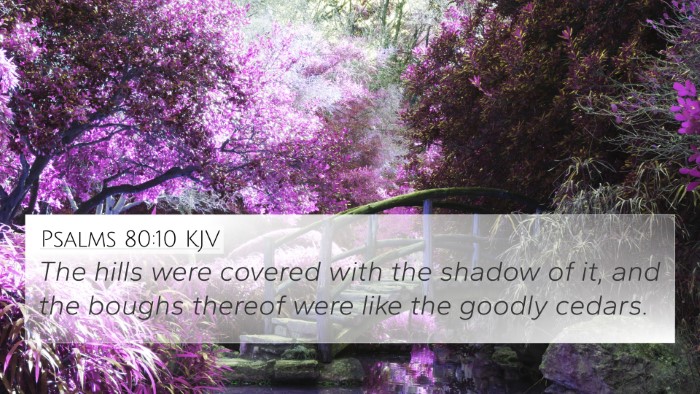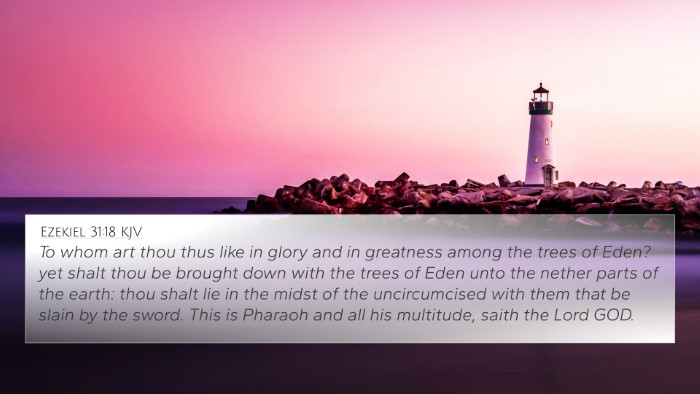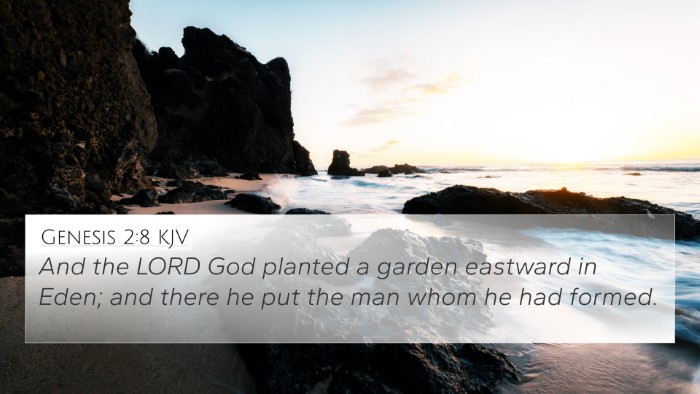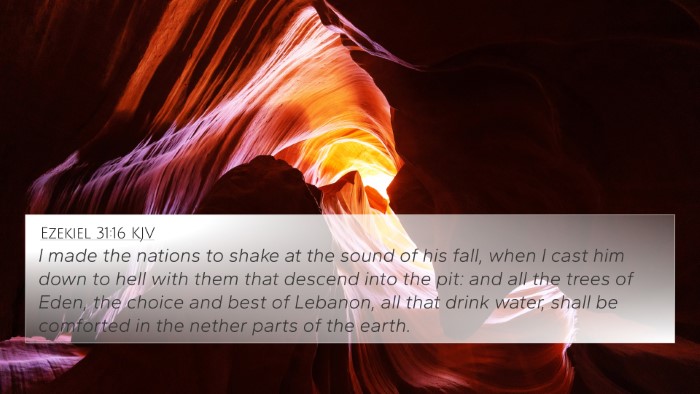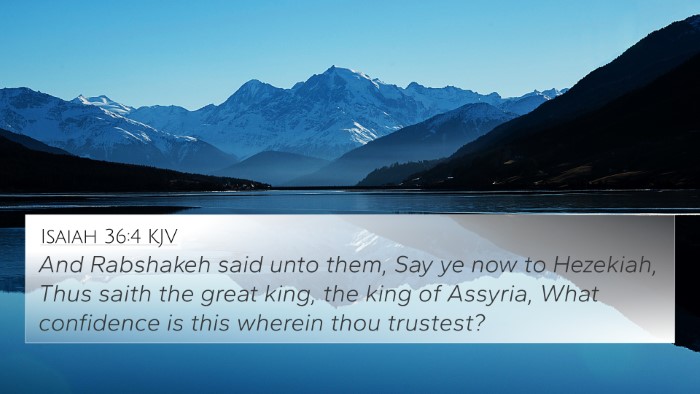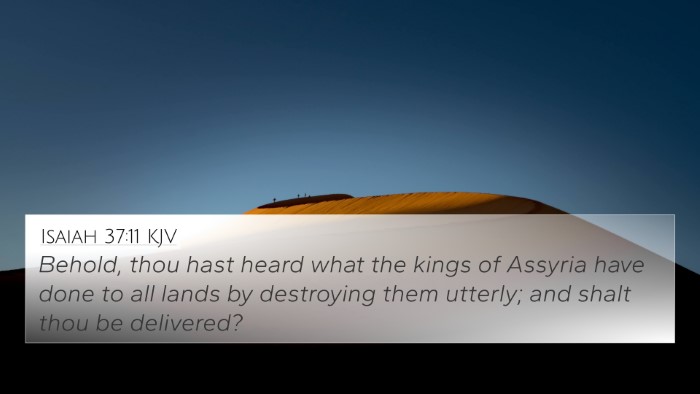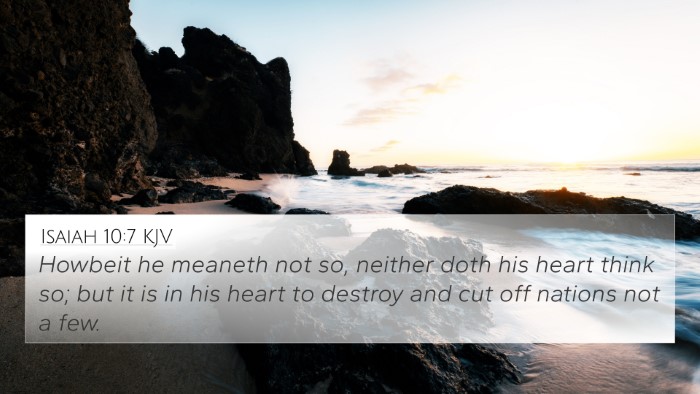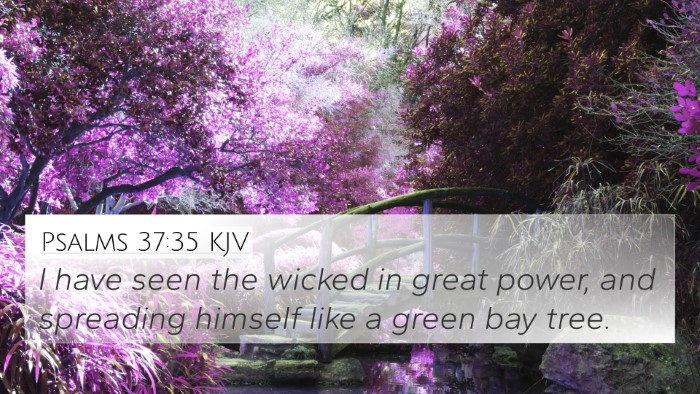Ezekiel 31:8 Explained
The verse Ezekiel 31:8 describes the grandeur of the Assyrian empire, comparing it to the mighty cedar tree. The beauty and strength of Assyria serve as a reminder of its past glory and eventual downfall.
Meaning and Interpretation
This verse presents a striking metaphor that conveys profound truths about pride, power, and divine judgment. The commentaries from renowned biblical scholars provide additional insights:
-
Matthew Henry:
Henry notes that the cedars of Lebanon symbolize strength and majesty. He draws parallels between the strength of the cedar and the arrogance of nations that believe they are invincible. The passage underscores that even the mightiest will face consequences for their pride.
-
Albert Barnes:
Barnes emphasizes the once-great nature of Assyria, illustrating how its rulers thought of themselves as indomitable. He highlights God's sovereignty and ability to humble the proud when He deems necessary, as evidenced by Assyria’s eventual fall.
-
Adam Clarke:
Clarke elaborates on the imagery used in Ezekiel 31:8, indicating that the lushness of the trees represents the blessings bestowed upon nations. However, he also warns that such blessings can lead to arrogance and downfall if not acknowledged with humility.
Cross-References and Connections
This verse can be cross-referenced with several other Biblical texts to deepen understanding:
- Ezekiel 17:22-24: Discusses the planting of a high tree, symbolizing God's planting of a righteous leader.
- Isaiah 2:12: Reveals God’s judgment against all prideful nations, emphasizing that the day of the Lord will come against those who are lofty.
- Isaiah 14:8-11: The fall of the proud, where the mighty trees of the forest rejoice at the downfall of the once proud King of Babylon.
- Jeremiah 22:15-16: Addresses the danger of relying on one's own strength and righteousness rather than on the Lord.
- Psalms 37:35: A reminder that the wicked can flourish, but their end will come just like the mighty cedars that may fall.
- Ezekiel 28:17: A warning to the king of Tyre regarding pride and its consequences.
- Daniel 4:30-33: The story of King Nebuchadnezzar’s pride and subsequent humbling, symbolizing that all earthly power is subject to divine will.
Thematic Bible Verse Connections
These connections illustrate a recurring Biblical theme: the tension between human pride and divine sovereignty. The following concepts surface:
- Pride Before a Fall: The motif appears consistently throughout scripture, warning against arrogance.
- Divine Sovereignty: God's control over the rise and fall of nations is a central theme in prophetic literature.
- Imagery of Trees: Frequent biblical imagery of trees represents nations or individuals, commonly signifying their strength, beauty, and ultimate fragility.
Conclusion
In studying Ezekiel 31:8, one gains insight into not only the historical context of the Assyrian empire but also the timeless lessons of humility and awareness of divine authority. The cross-references and thematic connections to other scriptures enhance an understanding of how this verse fits within the broader narrative of the Bible.
Tools for Bible Cross-Referencing
To further explore this verse and its connections, consider using:
- Bible concordance
- Bible cross-reference guide
- Comprehensive Bible cross-reference materials
Further Study Suggestions
For deeper understanding, individuals can engage in:
- Cross-reference Bible study: Utilize a study Bible or reference software to map out connections between various verses.
- Identifying links: Compare themes found in the Old and New Testament.
- Comparative analysis: Look into other prophetic writings to see parallels and literary techniques.
